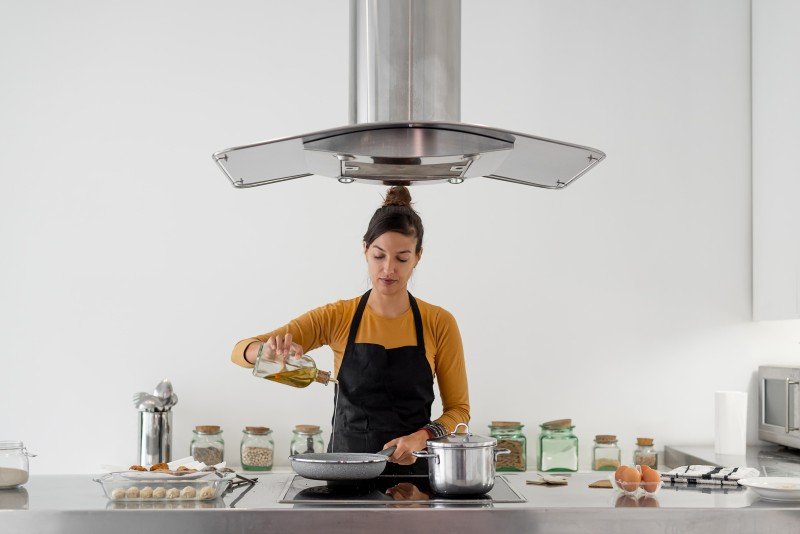Understanding Cookers and Hobs: A Comprehensive Guide
Cooking is an important aspect of every day life, and the advancement of kitchen home appliances plays a substantial role in how effectively and effectively individuals prepare their meals. Among these devices, cookers and hobs are 2 of the most vital instruments discovered in contemporary kitchens. This post explores the differences between cookers and hobs, examines their numerous types, and offers insights on their features, maintenance, and choice process.
What are Cookers and Hobs?
Cookers
Cookers are detailed kitchen appliances designed for cooking tasks, typically integrating an oven and a hob. They come in numerous configurations and types, accommodating diverse cooking requirements and choices.
Hobs
Hobs, on the other hand, are more concentrated home appliances primarily used for boiling, frying, and other stovetop cooking techniques. Hobs can be standalone systems or an integrated part of bigger cookers.
| Feature | Cookers | Hobs |
|---|---|---|
| Function | Combines oven and hob | Stovetop cooking just |
| Design | All-in-one system | Separate unit or integrated |
| Types | Electric, gas, double fuel | Gas, electric, induction |
| Installation | Enables more flexibility | Built into the counter top |
| Rate Range | Generally greater | Varies widely |
Kinds of Cookers
1. Electric Cookers
Electric cookers use electrical energy as their primary power source. ovensandhobs.uk feature an integrated oven and several cooking zones on the hob.
Benefits:
- Even heat circulation
- Offered in various designs (e.g., freestanding, integrated)
2. Gas Cookers
Gas cookers run on gas or liquefied petroleum gas (LPG). They provide instant heat control, making them a preferred amongst expert chefs.
Benefits:
- Instant heat changes
- More budget friendly operational expenses
3. Dual Fuel Cookers
Dual fuel cookers integrate the heat of gas with the efficiency of electric ovens. This setup enables the best of both worlds, offering control and consistent outcomes.
Advantages:
- Flexible cooking options
- Precise control over stovetop cooking and baking
4. Range Cookers
Variety cookers are larger and more effective than standard cookers, featuring several ovens and hobs for comprehensive cooking jobs.
Benefits:
- Ideal for large families or cooking for events
- Offers various cooking choices in one appliance
Kinds of Hobs
1. Gas Hobs
Gas hobs are preferred for their quick heating and strong flame, making them exceptional for searing and stir-frying.
Benefits:
- Instant heat and control
- Suitable with any type of pots and pans
2. Electric Hobs
Electric hobs heat up using electric coils or glass-ceramic surface areas, providing a modern appearance and efficient cooking.
Benefits:
- Easier to clean up
- Consistent surface area suitable for numerous pots and pans
3. Induction Hobs
Induction hobs utilize electromagnetic fields to heat pots and pans straight, using quickly and energy-efficient cooking.
Benefits:
- Safe (cool surface area after eliminating cookware)
- Energy-efficient and precise
4. Strong Plate Hobs
These conventional hobs utilize strong electric plates that warm up slowly.
Benefits:
- Rugged and durable
- Usually more economical than other types
Secret Features to Consider
When picking a cooker or hob, several functions should be taken into account:
- Size and Space: Consider the size of your kitchen and the quantity of work space required.
- Cooking Style: Choose based upon choice-- gas for control, induction for performance, and so on.
- Effectiveness Ratings: Look for energy-efficient models to decrease energy bills.
- Ease of Cleaning: Smooth surface areas facilitate easy maintenance.
- Safety Features: Automatic shutoff, flame failure gadgets, and child locks improve safety.
Upkeep Tips
Keeping cookers and hobs prolongs their life-span and ensures safe operations.
- Routine Cleaning: Wipe down surface areas after use to avoid buildup.
- Inspect Seals: Check oven door seals routinely for wear and tear to preserve performance.
- Service Regularly: Schedule expert maintenance at least when a year.
- Suitable Cookware: Use cookware appropriate for your hob type to prevent damage.
Regularly Asked Questions (FAQs)
What is the difference in between a cooker and a hob?
A cooker combines an oven and hob in one unit, while a hob is normally a standalone device for stovetop cooking.
Do I require a professional to install a gas cooker or hob?
Yes, expert installation is suggested for gas home appliances to guarantee safety and compliance with local guidelines.
Can I use any kind of cookware on induction hobs?
Induction hobs need magnetic pots and pans. Stainless-steel or cast iron pots work best. Non-magnetic products will not warm up.
Are electric cookers more energy-efficient than gas cookers?
While both have advantages, electric cookers tend to be more energy-efficient overall, particularly with contemporary, high-efficiency models.
How typically should I clean my cooker or hob?
It is best to clean them after each usage and carry out a comprehensive cleaning weekly to prevent accumulation and residue.
Understanding the differences, functions, types, and upkeep ideas for cookers and hobs is vital for any home cook. By picking the right appliance matched to their cooking needs, users can enhance their cooking experience, making meal preparation an effective and satisfying chore. Whether going with the immediate control of gas or the smooth performance of induction, picking the suitable cooker or hob can lead to an especially improved kitchen experience.

